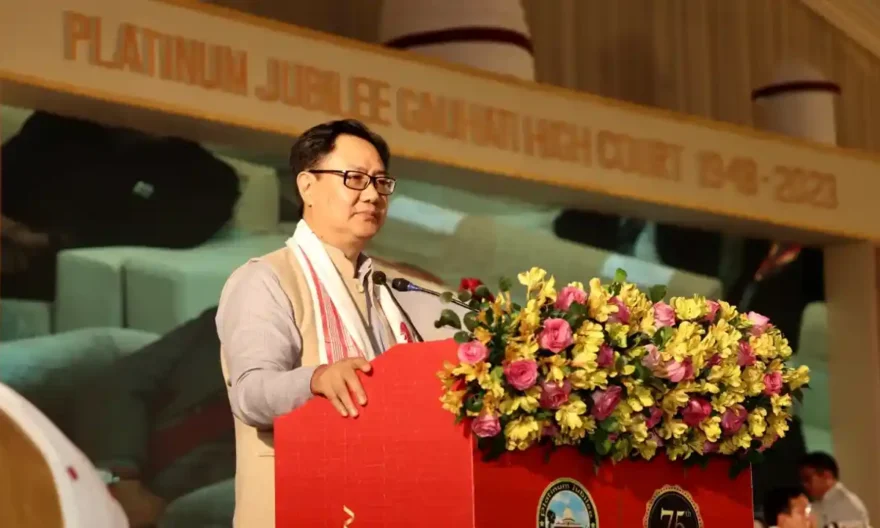
The Union Law Minister Kiren Rijiju recently claimed that differences between the executive and the judiciary are part and parcel of democracy and the same should not be labelled as ‘confrontation’.
According to the law minister, “some elements” do not want to see India’s success, thus efforts are being made to portray a conflict between the judiciary and the executive.
“As a Minister of Law, have bounden duty to uphold law. Independence of judiciary paramount, Sometimes, we are victim of uniformed discussions and debate. CJI has made his mind clear that relation between executive, Legislature and judiciary must be cordial. Some elements do not want to see India progress, in today’s online age. There are attempts made to portray situation where government and judiciary are in the differences. Differences of opinion integral part of democracy but cannot be termed confrontation,” he stated.
The law minister was addressing at the Gauhati High Court’s platinum jubilee celebrations. In his speech, Rijiju emphasised the importance of collaboration between the administration, judiciary, and legislature.
“Members of the bar and the judges will have to collaborate. Judges and bar members are two sides of the same coin; without them, justice cannot be served,” he remarked.
At the same event, the Chief Justice of India (CJI) stated that the administrative relationship between the executive and the judiciary should be defined by strong Constitutional statesmanship.
However, the CJI emphasised that citizens’ confidence and faith in the judiciary is based on a fierce sense of judicial independence.
In recent times, the Minister’s views on the judiciary have indicated his dissatisfaction with the Collegium system and judicial appointments, among other things.
Late last year, the war of words between him and the judiciary reached a fever pitch.
In October 2022, the law minister stated that the collegium system is too opaque and that judges appoint judges nowhere else in the world.
On November 5, he stated that there is intense politics at work even within the judicial community, which is currently in charge of appointing judges, and that the Central government would not remain ‘silent’ indefinitely over the ‘lack of transparency’ in the collegium system.
This enraged several former judges, who retorted that the government is to blame for the lack of transparency.
He later referred to the collegium as an alien system, stating that if the judiciary believes the government is sitting on files, the judges should do whatever they want and appoint judges on their own.
The Apex Court expressed its reservations about these statements quickly, and in open court.
On November 28, a bench of Justice Sanjay Kishan Kaul and Justice AS Oka stated that the Centre was frustrating the entire system and affecting the seniority of judges by withholding recommended names. The bench had requested advice from the Attorney General and Solicitor General on the matter.
In March 2023, the Law Minister sparked outrage when he stated that there are a few (retired) judges who are activists and are part of an anti-India gang that is attempting to turn the judiciary against the government, and those who turn against the nation will have to pay.
His remarks drew a lot of criticism, and more than 300 lawyers, including 62 Senior Advocates who practise before the Supreme Court and several High Courts nationwide issued a statement deprecating the Law Minister’s comments.




